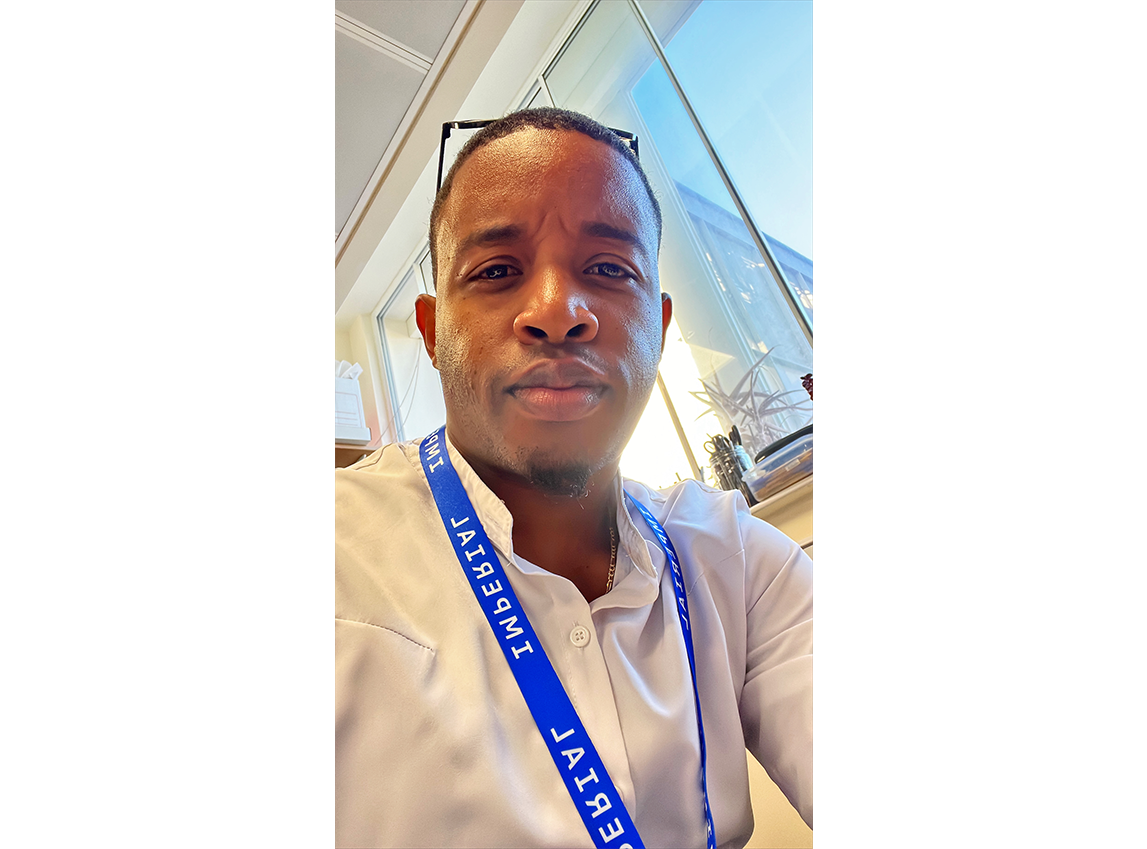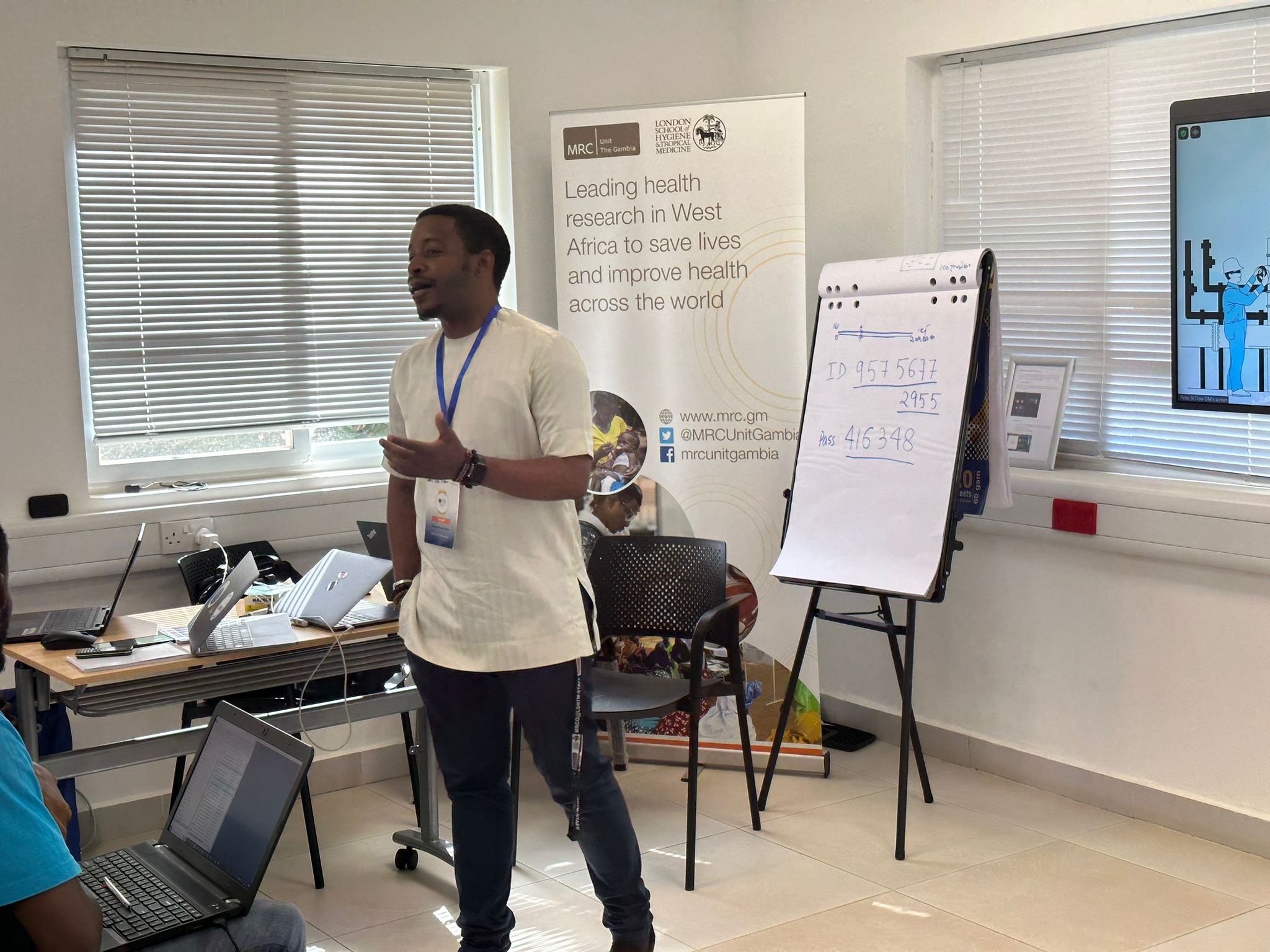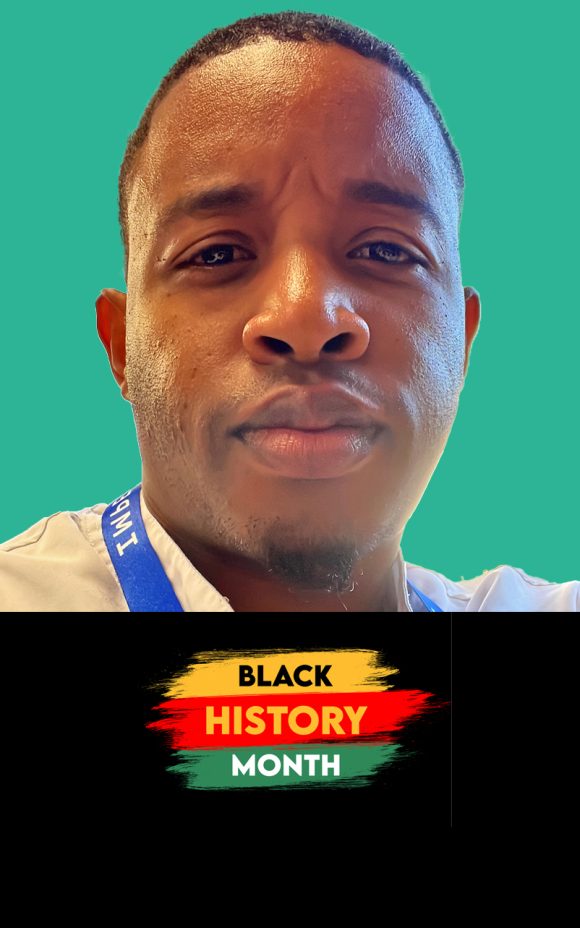
This Black History Month we spoke with some of MUSICC’s consortium members from the Black community to talk about their work in MUSICC, their career pathways and learn a little bit about who they are.
Peter S. Ndow recently joined the MUSICC consortium as a Clinical Data Manager and Lead Data Steward at Imperial College London. Hailing from The Gambia, Peter talks to us about his international work, the value of mentoring and reducing stress in a demanding career.

Connect with Peter on LinkedIn
What are you working on in MUSICC: in the past, now, or soon?
I am roughly seven weeks into MUSICC and mostly what I’ve been doing is getting my hands into the project and understanding the people we’re working with. Within my role, I am the Lead Database Developer for one of MUSICC’s clinical studies which is a brand-new database system for my group. I am also leading the development of a new data architecture that connects all of MUSICC’s partner institutions, for the integration of data and data management without the transfer of data. This network will allow MUSICC’s partners to analyse data in a federated approach, making this process much easier and more efficient.
What is a typical day like for you?
A typical day starts off with disturbing my colleague, Aminata, with a ton of questions and then getting stuck into the work, mainly developing the strategy for our consortium data architecture. I am also working closely with the clinical team to build our new database and the rest of the time would be piecing together all of the studies within our group, so I can identify where to be most impactful.
What was your career pathway and why did you choose it?
My background is in computer science and originally, I wanted to get into web development and software programming as part of designing computer games. I began an internship in data management and over seven years worked through the ranks to become a Lead Data Manager, running many projects and studies primarily in infectious diseases. I then worked as a consultant for the World Health Organisation (WHO), travelling across Africa and supporting multiple WHO studies involving around 44 countries. I then did a short a stint as a consultant for the London School of Hygiene and Tropical Medicine, working on data conversion for clinical trials. This was followed by employment at the University of Oxford as a Senior Data Manager, leading a team in building and conducting oncology clinical trials, before my current role with Imperial.
During your career, have you been specifically mentored or supported by someone?
Yes, a friend of my father took me under his wing as an intern and mentored me for a good five years. He supported me through a lot of things, which helped me fast track progression in my career. I asked him a million questions, took it upon myself to learn as much as I could from him and took on tasks beyond my scope. I would say find that person that is willing to answer even the stupidest questions that you can ask. I still go to him for help or advice now and he’s still a phenomenal support. He’s been a great influence on my career and helped me progress to be where I am today.
Did you have a role model that influenced your career?
My father has always been a big role model in my career as he has always said, “I need you to be greater than I am”. He always wanted to see me be a step ahead and he’s always been one to give me advice. His advice is sometimes difficult to hear in trying times, but it has great meaning and has guided me a lot. It’s helped define a lot in how I deal and work with people because my father has had fantastic working relationships with people throughout his career.

What have been some of your biggest achievements and challenges in your career?
Something I’m definitely proud of is mentoring people throughout my career, who have then gone on to succeed in their careers. I mentored a couple of people from The Gambia over a two to three-year period and they’ve now all gone onto jobs in universities in London. I also proudly mentored a few people in the UK too. Additionally, working on studies for WHO was another big achievement that produced about 19 publications, of which I was cited in about 10 or 11 of them. I’m also proud of being a Senior Data Manager at the University of Oxford because if you consider my experience, I think it’s quite a big deal to be employed directly from abroad into such a position.
Navigating new environments was very challenging as someone who moved freshly into the country and managed a team from the outset. This certainly developed me significantly as a line manager and gave me a lot of life experience.
What (or who) has motivated you in difficult times of your career?
My father has motivated me through trying times by giving advice on how to tackle them. He’s always told me to be proud of what you’ve learnt today, because you will not regret it tomorrow. But also, my love for gaming has been a way I could take my mind off very difficult and challenging moments. It’s helped me to stop overly stressing on work and when life feels a bit out of control it’s something you can have full control of and enjoy yourself.
In ten years, what do you hope to have accomplished in terms of your work?
I’d really like to take my experience in data management back home and capacity build across Africa. Within MUSICC I’d really like to be able to take the data architecture across the network we’re working on and turn that into a beacon for Imperial, as a stand-out project. The kind that sets the tone going forward for any consortium led studies, using a federated approach of data management.
What does working on MUSICC mean to you.
Being part of the project is phenomenal and it’s something I really want to be a part of and grow into as much as possible. This consortium is amazing to be a part of because of the type of people involved. It excites me personally just to be a part of, let alone what we can achieve tomorrow.
How do you think we could we encourage more Black people to engage with science?
I think that’s a difficult question and can depend on different populations. I think to be part of science comes with passion and by showing more successful Black people in science we can certainly encourage this. In my career, it was a lot easier to encourage people to get involved in data management because they could see I’d done it and then wanted to learn from me. I think it’s about using visibility as a means of encouragement for others to become whatever they want to be in their lives.
Is there anything you’d like to say to young Black audiences in particular?
Don’t be afraid to ask questions, even if you think they don’t make sense. Some people really love to answer questions. If you don’t ask questions you’re not going to learn and if you don’t learn, you’re not going to progress as fast as you want. Try not to let your challenges isolate you, because there are other people out there who are probably facing similar challenges to you. So put yourself out there as much as you can.
When you hear Black History Month what comes to mind?
I see it as an opportunity to expose the success of Black people and showcase the greatness of what people are doing, especially those who have done well in various careers and businesses etc. But this is an opportunity that we should apply, not just to this month, but across the year to celebrate the successes of the many people.
Do you come from an academic family?
Interesting question because my father worked in maritime fisheries and my mother was in the hotelier business. But there are many doctors in my family, as well as my late grandfather who was amongst the first five Gambian medical doctors. He was a successful doctor and researcher in The Gambia that led the eradication of smallpox in the 70s. Additionally, my uncle is a Professor in Urology at the University of Aberdeen and has led a lot of research in urological cancers, earning himself an MBE. As a result, during my A-levels I had no clue what I wanted to do until I became interested in computer science. It wasn’t until I got into health research on a global scale that I realised how much the careers in my family, especially my grandfather’s, really meant to me.
Besides your scientific interests, what are your personal interests?
I am a huge Manchester United fan, and everybody tells me I am the most loyal person they know because I never get tired of my team losing all the time! I do a lot of gaming with friends on Call of Duty and FIFA. I go to the gym a lot and that keeps my mind sharp after a heavy day of work. When I started working in health research in The Gambia, my Head of Department got me into playing touch rugby on the beach, a sport I never liked. This 60-year-old man dragged me to the beach two times a week and now it’s one of my favourite sports back home; the irony!
If you had the option to give advice to a younger version of yourself, what would that be?
Don’t be afraid to ask questions and don’t deprive yourself of opportunities that come your way but always seek and you shall always find. I’ve gained lots of different experience throughout my career because I grabbed opportunities to learn outside my scope, but I would advise myself to try and do that a little bit earlier.

31st October 2025